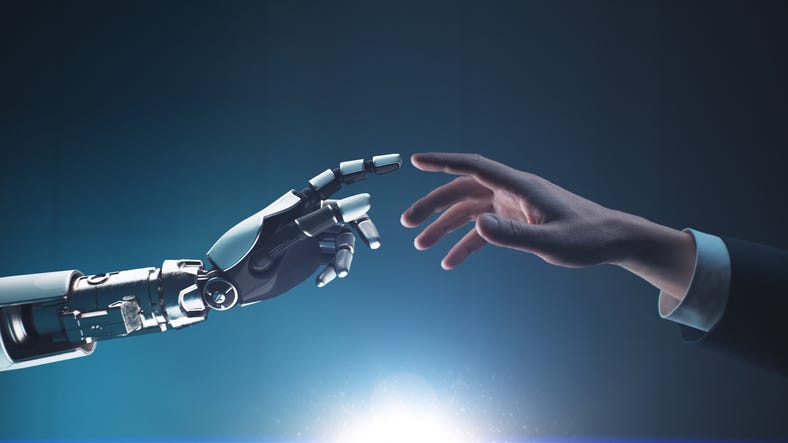Table of Contents
Artificial Intelligence (AI) is transforming our world in ways we never imagined, presenting opportunities and challenges. This article explores the future of AI and its potential impacts.
Understanding AI: What Is It?
Artificial Intelligence is the simulation of human intelligence in machines, using algorithms and vast datasets to perform tasks like problem-solving, understanding natural language, and recognizing patterns. AI can be narrow, designed for specific tasks, or general, with broader capabilities. As advanced, AI excels in executing complex functions faster and with greater accuracy than humans. Understanding AI&8217;s fundamentals is crucial for its future applications.
The Evolution of AI Technology
AI, born in the 1950s, began with simple computer programs mimicking human problem-solving. Its rapid progress in the 21st century, fueled by advancements in machine learning and supercomputers, has made AI more sophisticated and useful. Today, AI is embedded in various applications, including smart home devices, autonomous vehicles, and complex data analysis tools, making AI concepts into everyday realities.
AI in Everyday Life
AI is now an integral part of our daily lives, often in ways we don&8217;t immediately recognize. Voice-activated assistants like Siri and Alexa leverage AI to respond to our queries, manage our schedules, and control smart home devices. Online streaming services use AI algorithms to suggest movies and music based on our preferences. In healthcare, AI-powered tools help diagnose diseases with increased accuracy and speed. Retailers utilize AI to tailor customer experiences through personalized recommendations and efficient supply chain management. Even our social media feeds are curated using AI to keep us engaged. The seamless integration of AI into everyday functions is revolutionizing convenience and efficiency.
Potential Challenges and Ethical Considerations
Despite its benefits, AI poses significant challenges and ethical questions. One primary concern is data privacy, as AI systems often require extensive personal data to function effectively. There&8217;s also the risk of algorithmic biases, where AI inadvertently fosters discrimination due to prejudiced data sets. The potential for unemployment rises as automation replaces human jobs, especially in sectors like manufacturing and customer service. Ethical considerations about decision-making in critical areas, such as healthcare and law enforcement, are also paramount. As AI continues to evolve, balancing innovation with ethical responsibility will be essential to ensure it serves humanity positively.
Future Applications of AI
The future of AI holds enormous potential across various fields. In medicine, AI could enable personalized treatment plans by analyzing genetic information and predicting patient responses to medications. The agriculture sector may benefit from AI-driven precision farming techniques, enhancing crop yields and reducing waste. Environmental conservation can leverage AI for monitoring ecosystems and predicting climate change impacts. AI-powered autonomous vehicles promise to revolutionize transportation, making it safer and more efficient. Moreover, AI’s role in education could personalize learning experiences, catering to individual student needs and improving outcomes. These future applications suggest that AI&8217;s scope is limited only by our imagination and ethical foresight.
AI and Society: Preparing for the Future
Adapting to an AI-driven future requires comprehensive preparation. Education systems need to evolve, emphasizing STEM (Science, Technology, Engineering, and Mathematics) and digital literacy to equip the next generation with necessary skills. Policymakers must draft regulations that balance innovation with ethical standards to mitigate risks like job displacement and data misuse. Public awareness campaigns are essential to demystify AI and promote its benefits while addressing societal concerns. Collaboration between governments, businesses, and educational institutions will be crucial in shaping an inclusive AI future. By strategically preparing for AI&8217;s integration, society can harness its potential while minimizing adverse effects.
Conclusion: Embracing AI’s Potential
Artificial Intelligence represents a groundbreaking frontier in technological advancement. Its capabilities in enhancing efficiency, driving innovation, and solving complex problems are unparalleled. However, realizing AI&8217;s full potential requires addressing accompanying challenges and ethical considerations. As we venture into this uncharted territory, collaboration, thoughtful regulation, and public engagement will be key. By embracing AI responsibly, we can navigate its complexities and leverage its capabilities to build a better, more advanced future for all.


